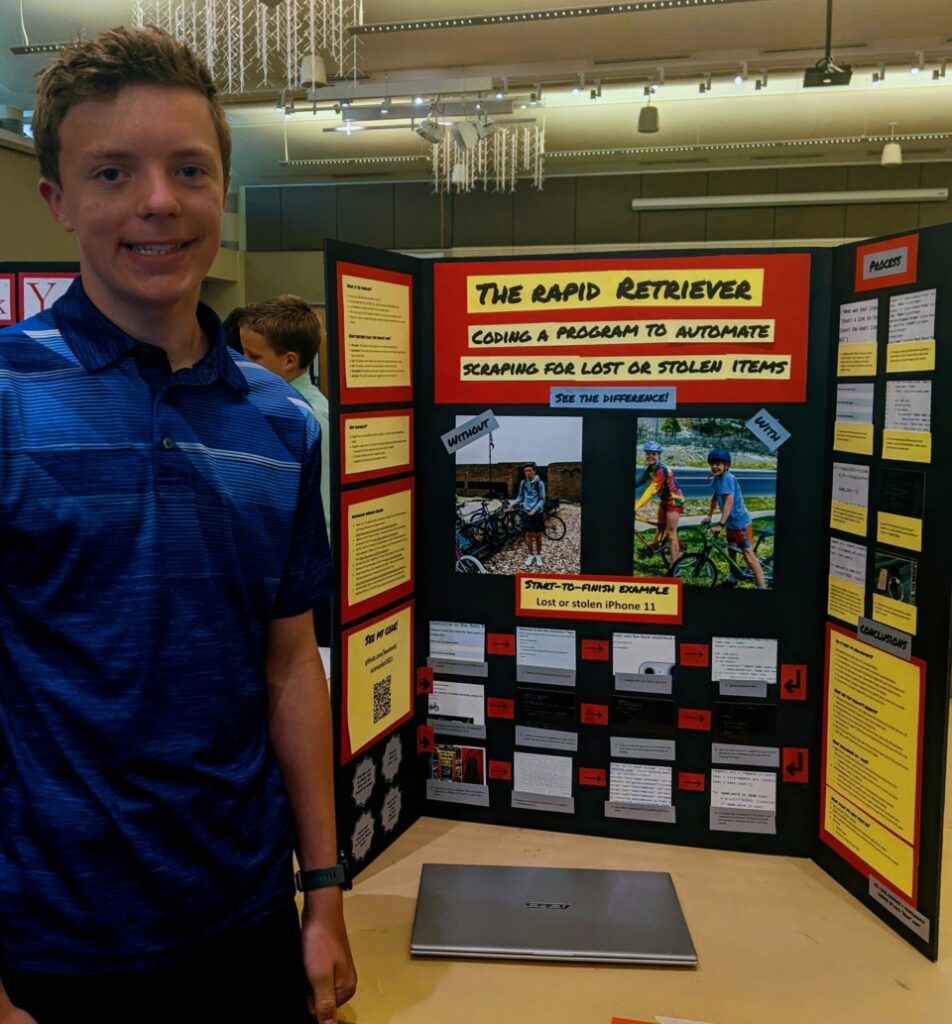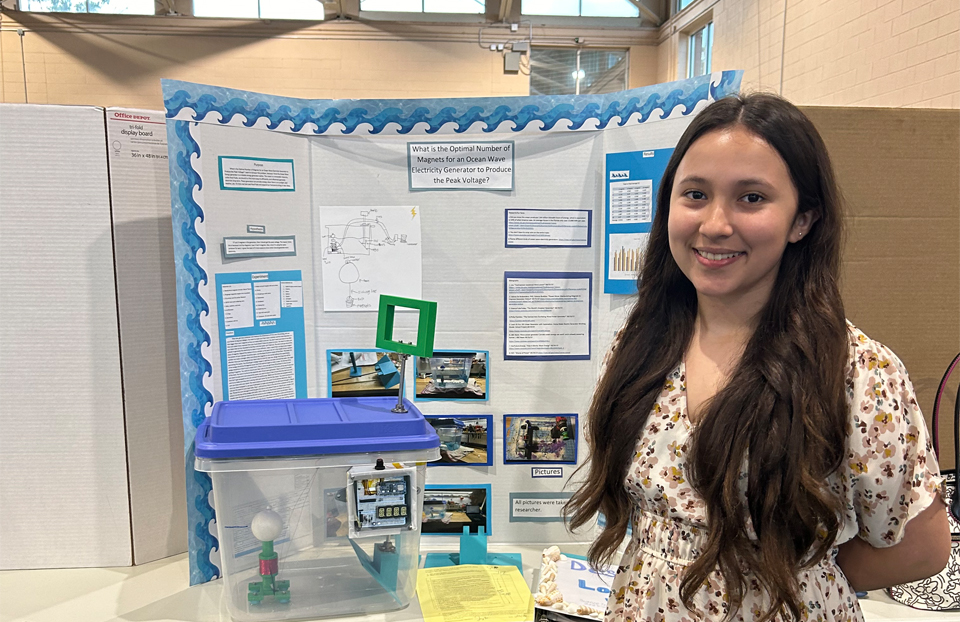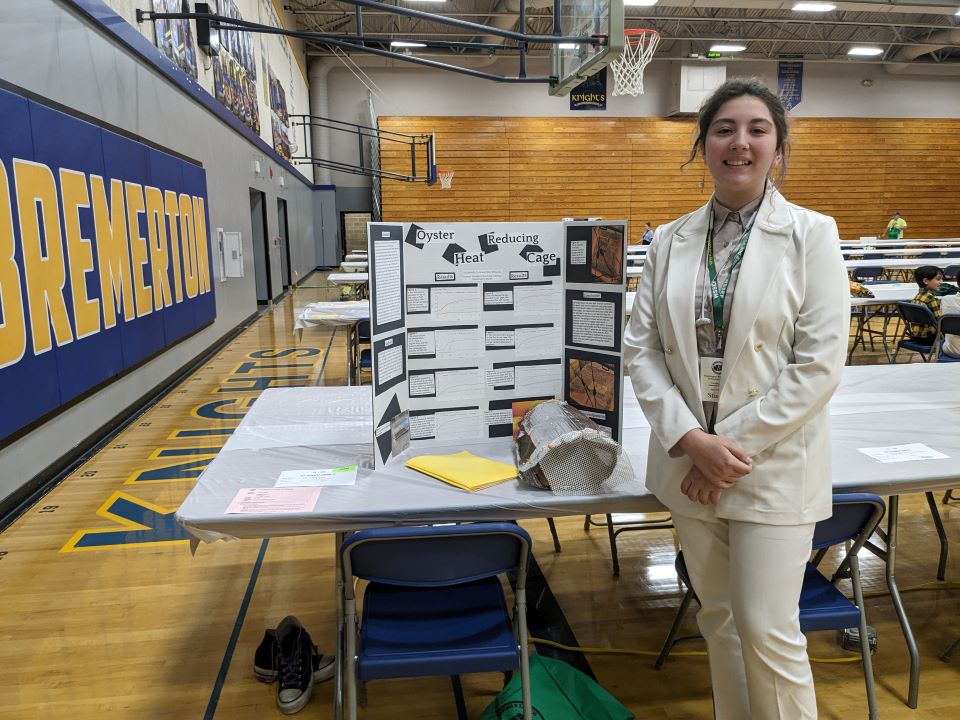Middle school student creates “Rapid Retriever” to help find lost or stolen items

For the fourth year, The Lemelson Foundation is giving $100 awards to outstanding young inventors in Society Affiliate Fairs with middle school participants around the country. The prize was especially created to reward young inventors whose projects exemplify the ideals of inventive thinking by identifying challenges in their communities and creating solutions that will improve lives.
Being the victim of bicycle theft is, to put it mildly, no fun whatsoever. It is also a widespread and costly issue: nearly 200,000 bikes are reported stolen in the United States each year, and it is estimated that the true number is closer to 2 million. At an average price of $500 per bike, thefts cost consumers hundreds of millions of dollars every year.
Last year, David Kent, who is now an 8th Grader at Eagleview Middle School in Colorado Springs, Colorado, found himself part of that unfortunate number when his bike was stolen from directly in front of his school. Though the theft was recorded by security cameras, he knew recovering his bike was a long shot—but he still had to try. Unfortunately, he soon found that combing the internet for traces of stolen property carries its own set of challenges.
“It was very time consuming to check Craigslist every day for my stolen bike,” David said. “I wanted to create a product that could automate the annoying task of checking Craigslist for lost or stolen items.”
Rather than merely imagine it, David was determined to make his idea a reality—so he set out to create a website that would allow users to efficiently cut through the noise of the secondhand online marketplace. Though he had never created a website before, he had experience coding in C, Dart and Python, which he learned while developing previous science fair projects, which would prove to be a strong foundation as he began this new project.
He decided to begin coding his product, which he calls the Rapid Retriever, in Python 3. He also took the opportunity to learn Flask, a module used to code websites using Python, while also building titles, images and buttons in HTML and CSS to create a fluid front-end web experience.

David used the Python-Craigslist module to extract data from Craigslist, then created a form in Flask to load user data into his Python code. Finally, he used an HTML parser called lxml to extract images from Craigslist links. The end result? Users can use the Rapid Retriever to input their search queries and, in less than ten minutes, the program scrapes Craigslist and offers possible matches.
The development process was not without obstacles, however. In addition to learning new programs and skills, David was faced with the challenge of misleading listings. He found that many people add commonly searched-for keywords to their descriptions to increase views on their listings, even if they’re not helpful to searchers. To address this issue, he created an additional filter that examined each link and filtered out detected spam from his results.
For his work, David was awarded a Lemelson Early Inventor Prize at the Pikes Peak Regional Science Fair in Colorado Springs. On receiving this recognition, David said, “My favorite part of the invention process was creating a website that helped people find their stolen or missing items—I felt honored to be recognized by the Society for Science for pursuing an interest in STEM through a real-world, project-based opportunity.”


